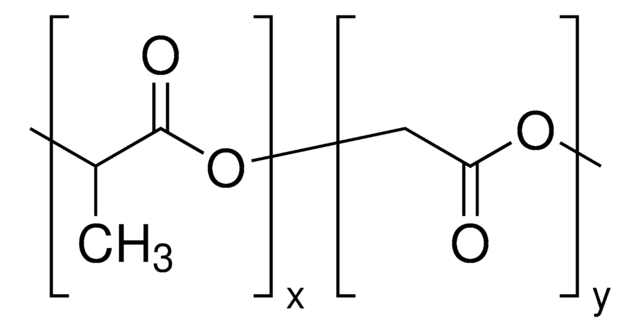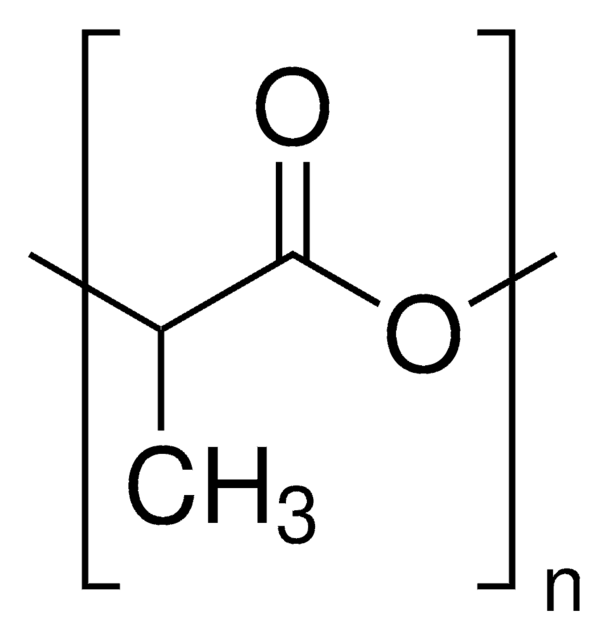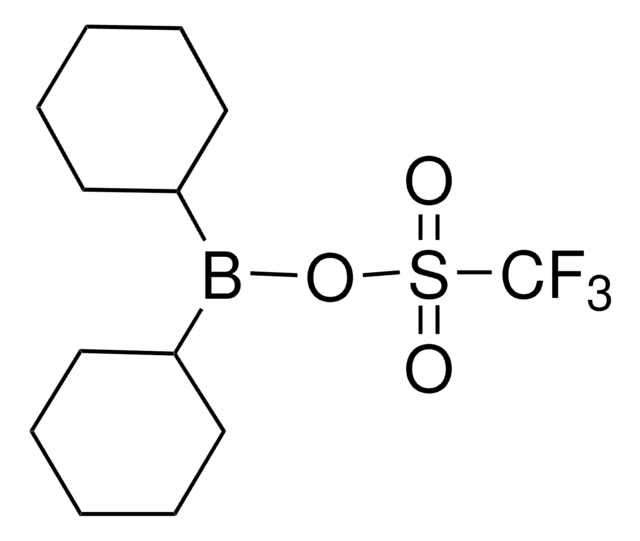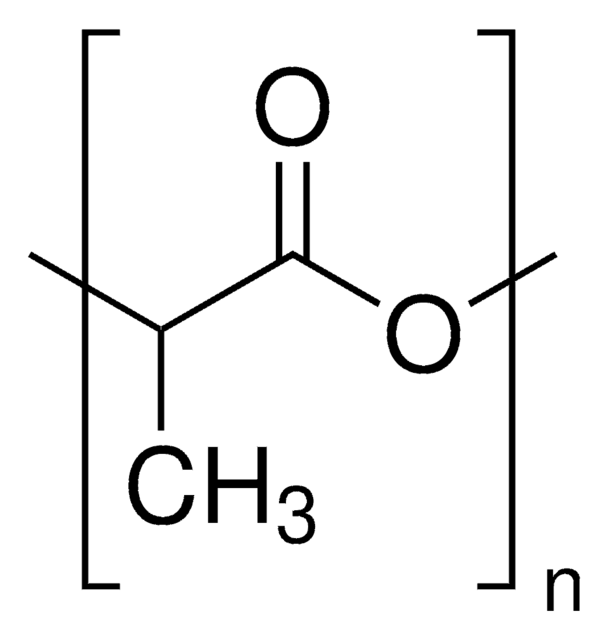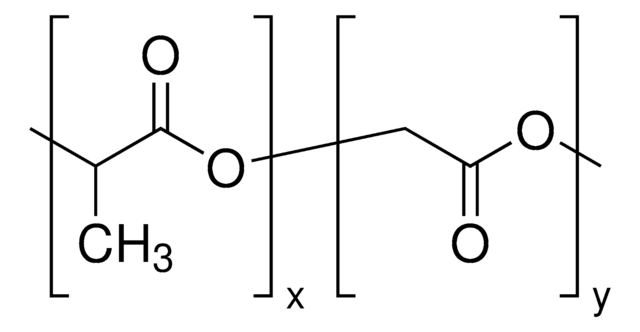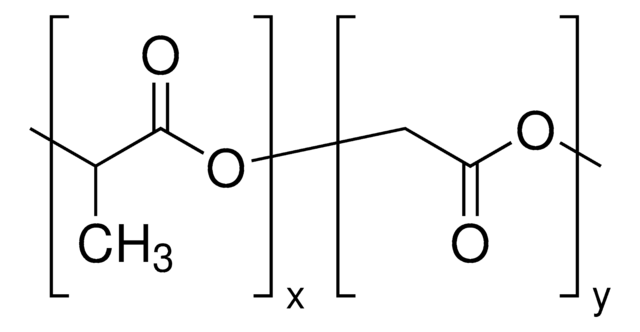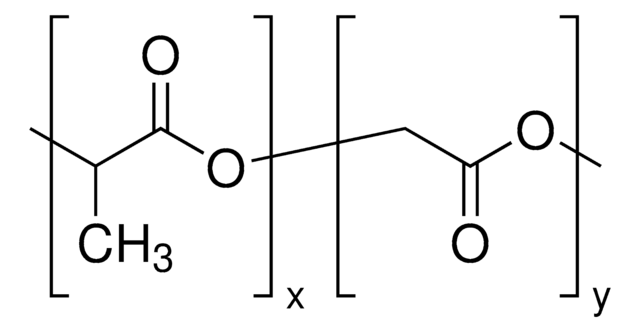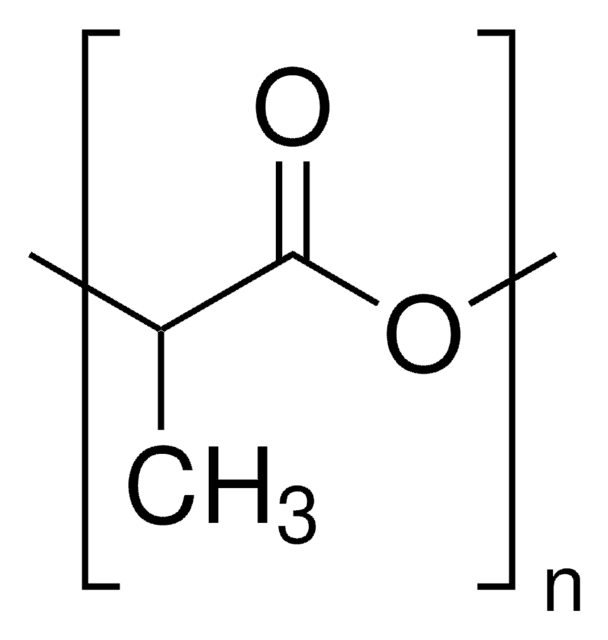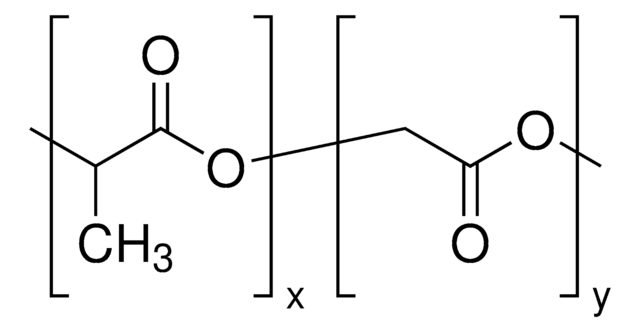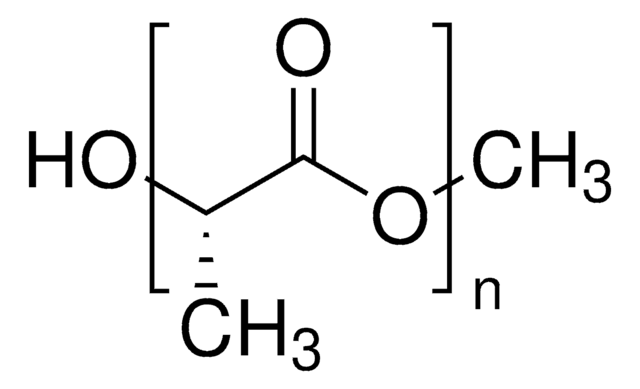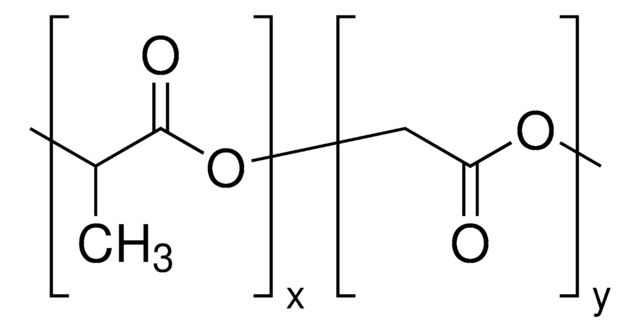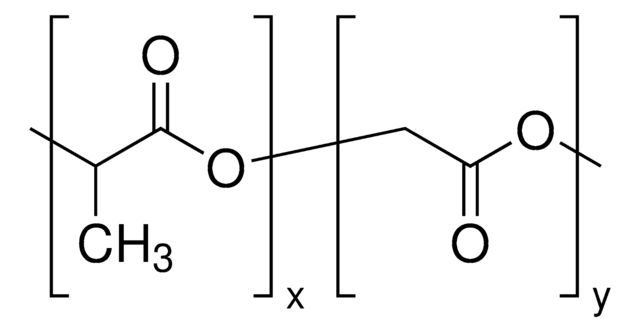719978
Resomer® R 202 H, Poly(D,L-lactide)
acid terminated, Mw 10,000-18,000
Sinónimos:
Lactide polymer, PDLLA, Polylactide
About This Item
Productos recomendados
Quality Level
form
amorphous
mol wt
Mw 10,000-18,000
degradation timeframe
<6 months
viscosity
0.16-0.24 dL/g, 0.5 % (w/v) in chloroform(25 °C, Ubbelohde) (size 0c glass capillary viscometer)
transition temp
Tg 44-48 °C
storage temp.
2-8°C
InChI
1S/C6H8O4/c1-3-5(7)10-4(2)6(8)9-3/h3-4H,1-2H3
InChI key
JJTUDXZGHPGLLC-UHFFFAOYSA-N
Categorías relacionadas
Application
Legal Information
Related product
Storage Class
11 - Combustible Solids
wgk_germany
nwg
Elija entre una de las versiones más recientes:
¿Ya tiene este producto?
Encuentre la documentación para los productos que ha comprado recientemente en la Biblioteca de documentos.
Los clientes también vieron
Artículos
Aliphatic polyesters such as polylactide, poly(lactide-co-glycolide) and polycaprolactone, as well as their copolymers, represent a diverse family of synthetic biodegradable polymers that have been widely explored for medical uses and are commercially available.
Aliphatic polyesters such as polylactide, poly(lactide-co-glycolide) and polycaprolactone, as well as their copolymers, represent a diverse family of synthetic biodegradable polymers that have been widely explored for medical uses and are commercially available.
In the past two decades, tissue engineering and regenerative medicine have become important interdisciplinary fields that span biology, chemistry, engineering, and medicine.
Innovations in polymer technology have had a significant impact on the advancement of novel drug delivery systems.
Contenido relacionado
Interest in utilizing biodegradable polymers for biomedical applications has grown since the 1960s.
Nuestro equipo de científicos tiene experiencia en todas las áreas de investigación: Ciencias de la vida, Ciencia de los materiales, Síntesis química, Cromatografía, Analítica y muchas otras.
Póngase en contacto con el Servicio técnico